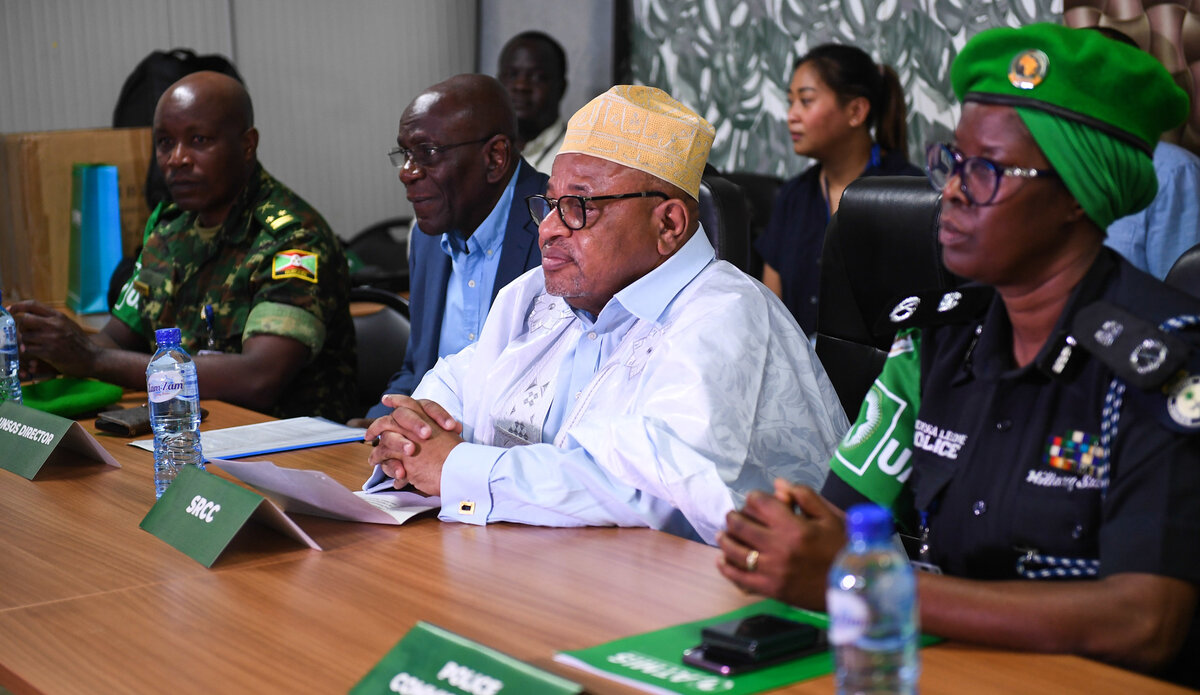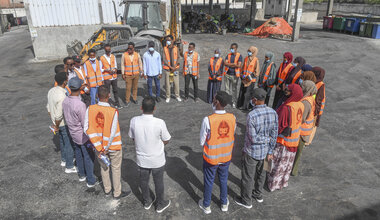UNSOS conducts environment sensitisation training for ATMIS personnel
Mogadishu – The United Nations Support Office in Somalia (UNSOS) conducted a one-day workshop to sensitise personnel of the African Union Transition Mission in Somalia (ATMIS), on the need to protect the environment when implementing the mission mandate to secure Somalia.
Facilitated by the UNSOS Environment Officer, Richard Oyoo and the ATMIS Environmental Focal Point, Andrew Alele, the training held in the capital Mogadishu, was attended by personnel drawn from across the ATMIS military and police contingents in all the sectors.
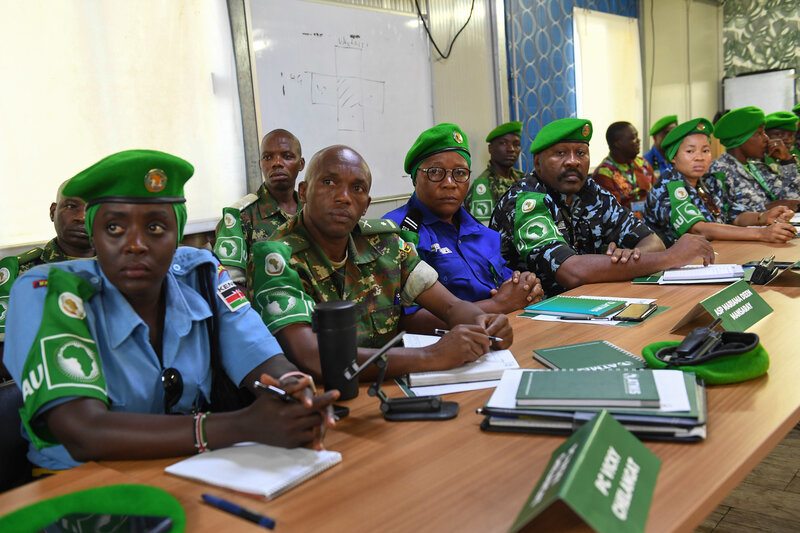
The training covered various topics outlining the role of ATMIS Standard Operating Procedures for the environment developed in 2019, the UN environment strategy, waste management, efficiency in the use of energy, fuel and water within the mission area, how personnel can protect the environment, best practices during the handover of Forward Operating Bases, and the use of electric bikes.
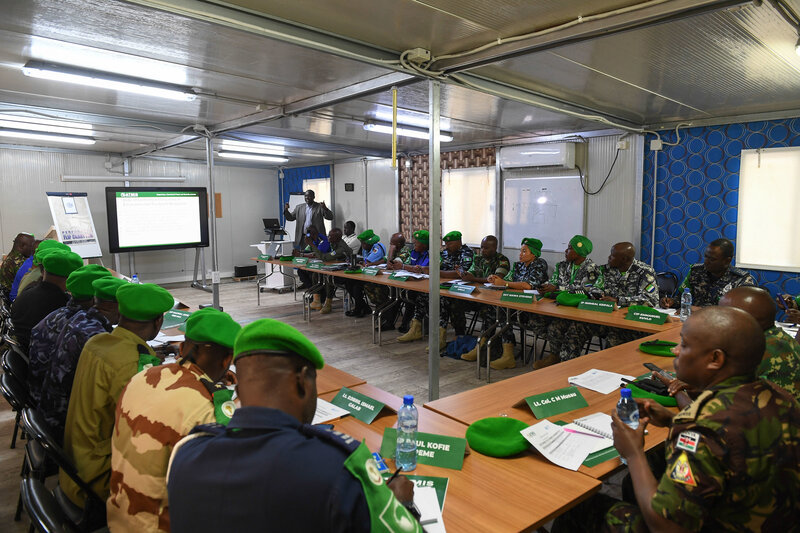
Speaking at the workshop, the UNSOS Director, Amadu Kamara highlighted that the environmental implications of the logistical support provided to ATMIS including water, food rations, waste management and fuel have environmental implications. In effect, the UNSOS Director urged ATMIS personnel to adopt sustainable practices to conserve the environment.
“Military and police personnel can make a difference. You can lead by example, by adopting sustainable practices and encouraging others to do the same. Energy consumption can be reduced through small actions,” said Kamara noting that “Improving energy efficiency would require reducing vehicle idling, which burns fuel and emits carbon dioxide, also, turn off air conditioners when not needed. These small actions can make a big difference when done collectively.”
UNSOS which is mandated to provide logistical support to ATMIS, is already implementing environmental protection measures such as deployment of portable toilets and barrel incinerators at ATMIS Forward Operating Bases (FOBs) and nursing tree seedlings for planting by ATMIS at the FOBs.
According to Kamara, pollution, deforestation, and destruction of natural habitats pose serious threats to the environment and its imperative that UNSOS and ATMIS are required to report on environmental performance every six months.
“In the fiscal year 2021/22, ATMIS registered an environmental performance score of seventy-four per cent, which is a commendable achievement and one of the highest for any military in peacekeeping operations,” noted Kamara.
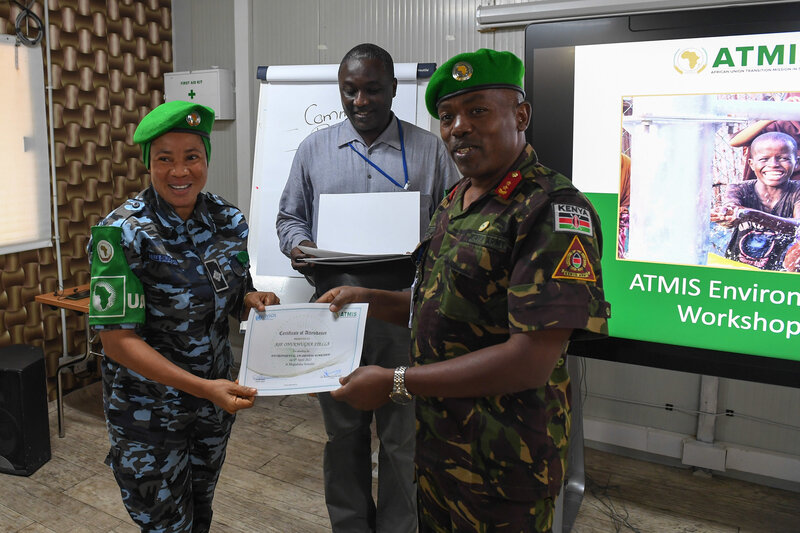
At the end of the workshop, participants came up with an action plan that will see ATMIS integrate environmental issues in its operations and activities. The action plan sets out a raft of measures that ATMIS personnel will undertake to contribute to environmental protection.
The Head of ATMIS, Ambassador Mohamed El-Amine Souef, urged ATMIS personnel to take part in the mission’s initiatives to protect the environment, which he said would fulfil the commitment made by ATMIS and UNSOS during the 23rd session of the Assembly of the International Renewable Energy Agency held in Abu Dhabi at the beginning of this year.
“We therefore need to increase our efforts to integrate climate change considerations into our ongoing operations while we recognise the different vulnerabilities and capacities of women, men, girls and boys in the communities where we are deployed,” noted Ambassador Souef.
The ATMIS Deputy Force Commander in charge of Support and Logistics, Maj. Gen. Peter Kimani Muteti, who spoke at the close of the workshop, noted that through environmental protection, ATMIS personnel will help avert climate change-related conflicts in Somalia.
“We want to leave Somalia peaceful and stable; not with other conflicts resulting from poor environmental management," said Maj. Gen. Muteti.
 UN
UN
